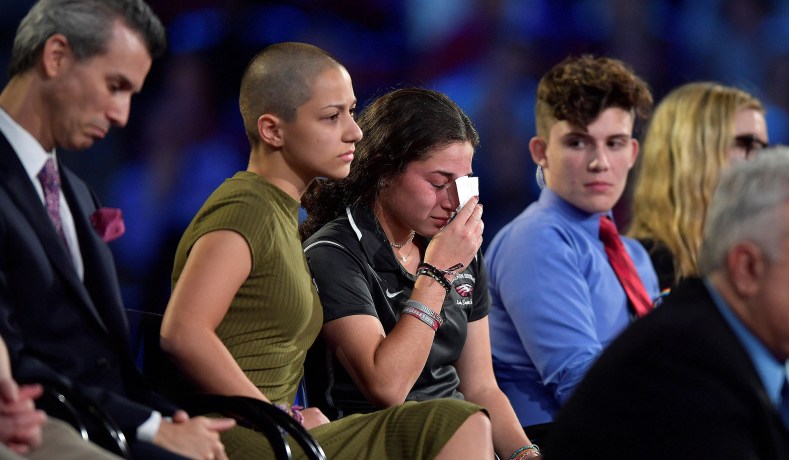Kerby Anderson
You may start seeing the phrase “opinion laundering” more often in news and commentaries. Journalists have used the phrase to identify something that has been taking place in the public relations industry. Politicians and journalists try to get legitimate third parties to validate their policy positions. That way they don’t have to look like they are taking a position. Instead, they use someone else to express their opinion.
Kyle Smith documents the latest way this is being used in his article, “Opinion Laundering in Parkland’s Wake.” Many journalists have been using the students affected by the Parkland shooting as a “mouthpiece for the gun-control message.” Two of the students from the Parkland shooting have become instant celebrities on television and have a huge number of Twitter followers.
First, let me state the obvious. These students have the right to express their ideas and opinions. What they have experienced has affected them and given them a platform to speak out against gun violence.
Second, they have entered into the public arena with their ideas and opinions. That means we can agree with them or disagree with them. We can point out flaws in their arguments. Such critiques should be done carefully and graciously.
Finally, a wise and discerning consumer of media should also recognize that media outlets like CNN and MSNBC are using these students to promote their own ideas about gun control. And they ignored other students who weren’t promoting the gun control message.
These media outlets were willing to promote a few of the students because they were seen as sympathetic victims. And those same media outlets warned that we should not criticize or correct anything the students say.
It is a difficult balance. We should acknowledge the pain and grief these students feel. But we cannot let naïve clichés and inaccurate conclusions go uncorrected. This is the challenge we face when students are exploited for opinion laundering.
 Listen Online
Listen Online Watch Online
Watch Online Find a Station in Your Area
Find a Station in Your Area










 Listen Now
Listen Now Watch Online
Watch Online
